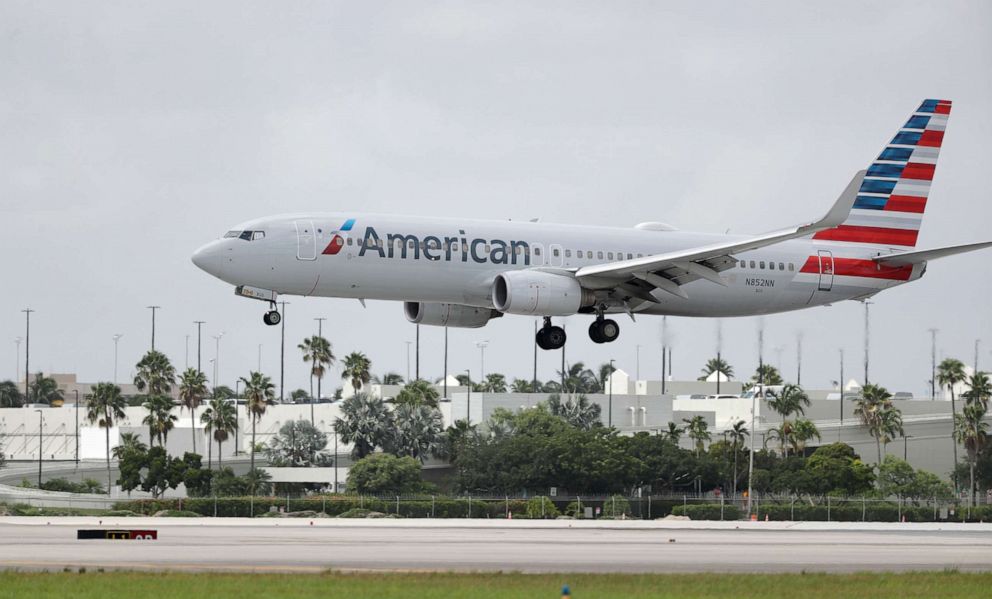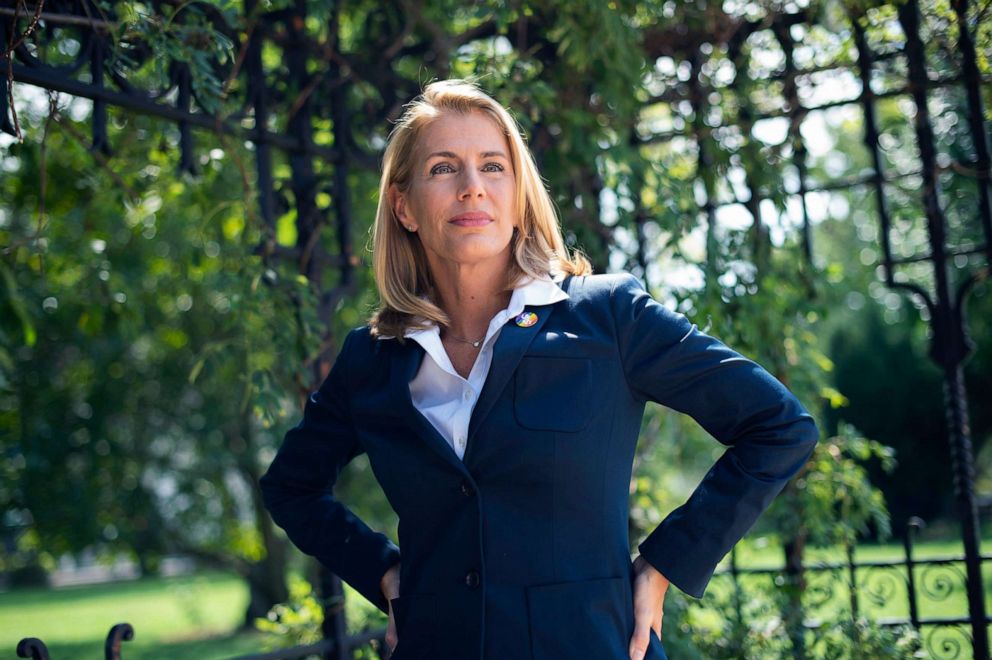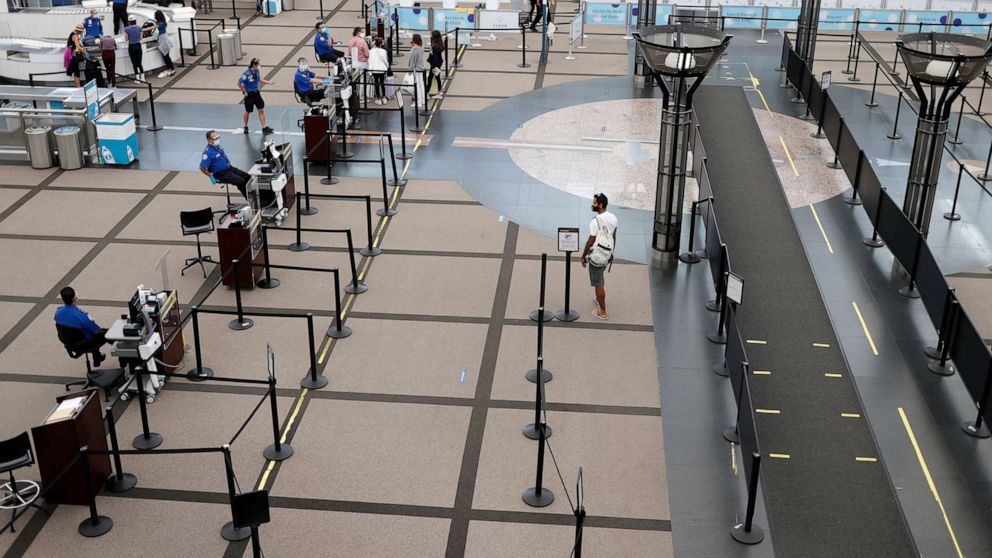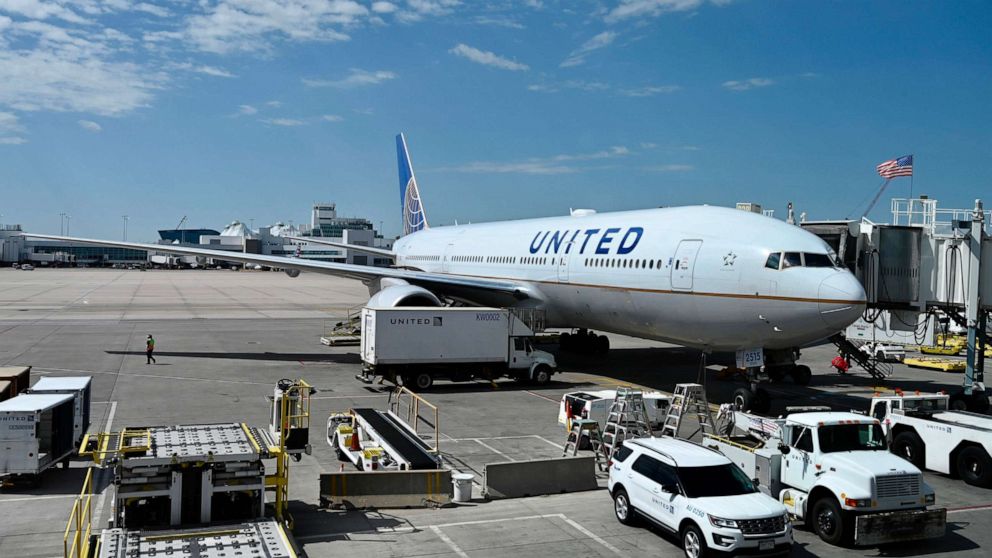More than 70,000 airline jobs in jeopardy as coronavirus relief expires
Tens of thousands of airline employees are anxiously bracing for Oct. 1 when U.S. carriers are likely to lay off employees following the expiration of relief provided by the CARES Act.
U.S. airlines have already warned a tenth of their workforce -- at least 75,000 employees -- that their jobs are at risk as the industry struggles to weather the coronavirus pandemic. Passenger volumes are still down 71% compared to last year and experts predict it is unlikely they will return to prepandemic levels until 2024.
The airlines and unions representing those on the front lines are pushing for an extension of the payroll support program, but lawmakers and the White House have yet to reach an agreement.
'We will need to be a small airline'
The four biggest U.S. airlines lost more than $10 million collectively in the second quarter and while they were encouraged by a small uptick in passengers in May and June after demand bottomed out in April, rising coronavirus cases and state quarantine rules have since threatened the small signs of recovery.
"We expect demand will continue to be volatile and recovery will not be perfectly linear as customers' willingness to travel evolves and regions reopen for business, and as infection rates change over time," JetBlue President and COO Joanna Geraghty said.
Over the past few months airlines have attempted to avoid layoffs by implementing a variety of cost-cutting measures, such as slashing domestic capacity, eliminating executives' salaries and freezing nonessential hiring. But major U.S. airline executives have made it clear they will need to be smaller airlines to survive.

Almost 20% of Delta's workforce -- more than 17,000 employees -- have accepted early retirement offers and buyouts and "thousands more" have agreed to take voluntary unpaid leaves.
It "was a difficult but necessary step towards Delta's transformation into a smaller, more nimble airline that will be better positioned to endure the crisis and recover quickly," Delta CEO Ed Bastian said in an internal memo.
Bastian said on a recent earnings call that he is hopeful that these programs will "minimize," if not "eliminate," the need for involuntary furloughs.
Other airlines, like United and American, have announced that even with healthy employee participation they are preparing to furlough up to 36,000 and 25,000 employees, respectively.
"Involuntary furloughs that we worked so hard to avoid are now the last option left to protect the long-term interests of the company," a United executive said in July.
'Time is now running out'
Thousands of pilots and flight attendants are among the 75,000 airline employees that have been told their jobs are in jeopardy. Their union representatives have been urging Congress to provide an additional $32 billion in aid that would prohibit involuntary layoffs until the end of March.
"Unless Congress acts to provide a financial backstop ... pilots and other airline employees will be forced to empty their savings, drain their retirements, delay seeking health care and sacrifice their children's future," President of the Air Line Pilots Association Capt. Joe DePete said on Thursday.
A group of 16 Senate Republicans and over 200 House members have expressed their support for an extension of the payroll support program.
"Yet we have no agreement," said DePete, whose union represents nearly 63,000 professional airline pilots. "And time is now running out."
U.S. airlines received $25 billion in payroll assistance in March. They agreed to place limits on executive compensation and eliminate stock buybacks and dividends, but some were still hesitant to grant them taxpayer dollars.
"It is the best use of the public's money because it keeps our airlines intact -- a vital service during this pandemic," Sara Nelson, both a current flight attendant and president of the Association of Flight Attendants-CWA, AFL-CIO, said.

In addition to jobs, Nelson is concerned that smaller communities in the U.S. will be underserved after the CARES Act relief expires and airlines are no longer barred from cutting off service to an entire market.
American Airlines announced on Thursday that it will temporarily stop flying to 15 cities in early October.
"The airline will continue to re-assess plans for these and other markets as an extension of the Payroll Support Program remains under deliberation," American said in a press release.
'Preparing for the worst, but hoping for the best'
One Chicago flight attendant who is still flying said he is "preparing for the worst, but hoping for the best."
"It's an uneasy feeling not knowing what's going to happen, but knowing something big is on the way," the flight attendant, who wished to protect his identity in fear of losing his job, told ABC News. "Tensions are high on the aircraft already, and the added stress of not knowing my future is tough."
He has already sent his resume to a few places, but his only relevant experience is in the airline industry.
"My best chances at a job are going to be in the service industry," he explained, "and most of them are overstaffed."

The flight attendant said many of his colleagues have turned to Uber and Instacart to make extra money.
"We write and call our senators daily," he said. "We need the payroll support to go through."
ABC News' Sam Sweeney and Amanda Maile contributed to this report.




